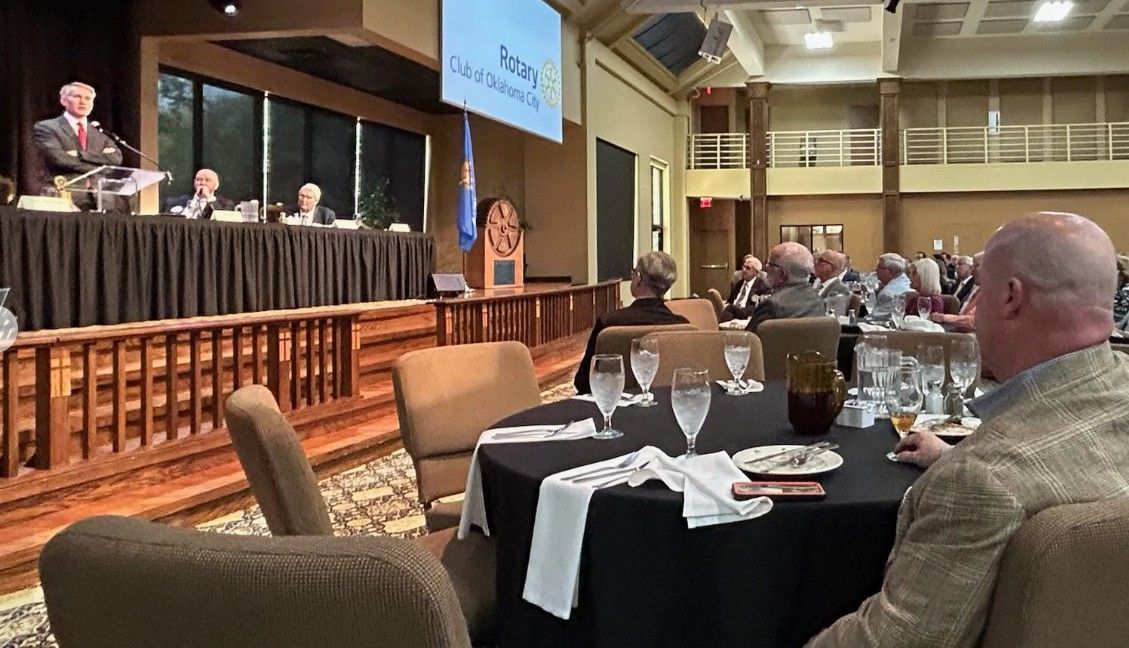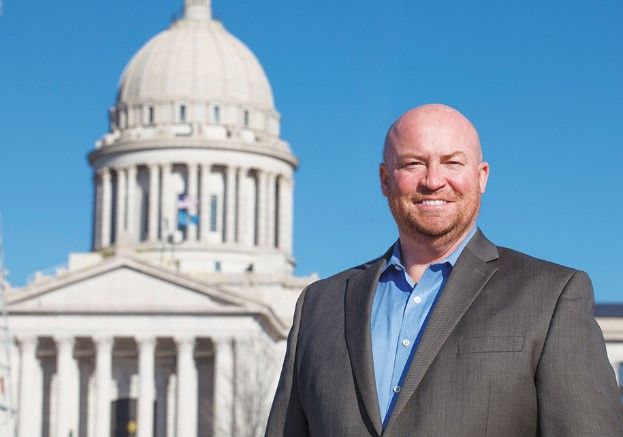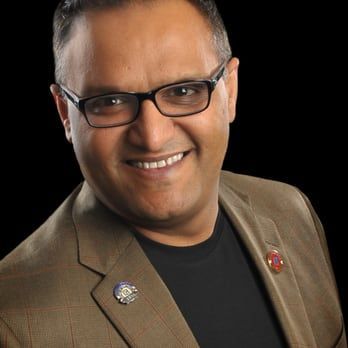Civility Versus Hostility

Oklahoma Institute for Child Advocacy CEO Joe Dorman (far right) listens as U.S. Sen. James Lankford, R-Oklahoma, addresses a recent meeting of the Rotary Club of Oklahoma City. In this week’s “For the Children” column, Dorman discusses “Civility Versus Hostility” in today’s political discourse.
One of my goals with the “For the Children” weekly column is to keep people aware of issues involving child advocacy and policy updates so individuals and organizations can champion solutions to problems faced by youth.
To me, it feels like many areas of conversation are growing harsher with distinct lines drawn over varying divides and other barriers. Politics is but one of those divides, but civility should prevail in discussion.
Case in point: U.S. Sen. James Lankford, one of Oklahoma’s two federal senators who is also a Republican, spoke to the Rotary Club of Oklahoma City at one of our regular meetings. The senator discussed issues currently being considered in Congress, along with his views on policies. He took about 15 minutes of questions, including one from me about cuts brought forth to public broadcasting and changes to emergency management programs. He gave a very direct answer to my question explaining his position and concluded that we likely would have a different opinion, which he is correct.
Afterwards, I thanked the senator personally and told him that I looked forward to our next visit, hopefully when I make it to Washington next month for an official visit about federal policy issues related to youth.
Even though we do not see eye-to-eye on this and many other policies, I expressed appreciation on social media for him taking the time to speak to roughly 300 people in the club and for the work he has done to restore the ability for Americans to declare a deduction on their taxes for contributions to nonprofits. This is an issue that was created in 2017 that led to many not donating to receive a tax break, resulting in billions lost to charitable organizations overall.
Unfortunately, I should not have been surprised at the ensuing posts from those who I have as connections on my pages. Most appreciated the civility in our dialogue, but others, including both liberals and conservatives, found reasons to post commentary that was not too flattering toward me for “not calling him out” and toward the senator for a variety of reasons.
I grow as frustrated as anyone about various issues which I feel are important, but I know that name-calling and hostility are not going to move the needle. Others obviously have a different opinion and feel that it takes sharp action to either change a politician’s mind or motivate the public to vote someone out.
While that might yield some success occasionally, I fear for what it does for our society to have young people see that as what feels to be the most taken pathway to make a difference in the world.
And it is not just politics, as this attitude has creeped into our personal lives, dividing friends and family. If we are not willing to sit down and look those others in the eye and maturely discuss differences, problems will not be fixed. It will take individuals who are willing to “agree to disagree” on some points, ultimately finding compromise in areas which can be reached to fix many issues before us.
This is how we encourage better behavior with future generations, and it starts at home, school, church, and other places as these children are learning from how we act as the adults in their lives.
And while I certainly do not agree with every position a politician has, no matter who it might be, I am willing to appreciate the good that each of them does on individual issues. I will certainly continue to advocate for changing someone’s mind to hopefully come around regarding the rest, as I hope you will also, but remember, children are watching and learning with how we do this.











